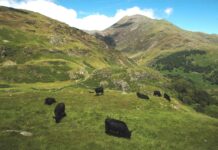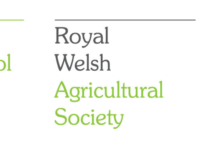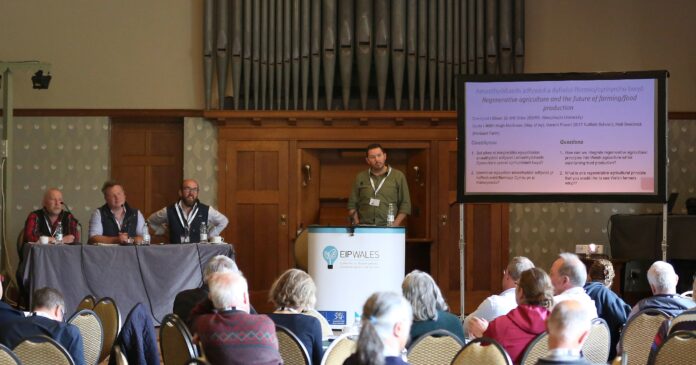
European Innovation Partnership (EIP) Wales has celebrated six years of funding on-farm projects with a recent conference near Newtown to mark the culmination of the programme. The EIP Wales programme ended in March 2023 but a leading figure in Welsh agriculture, Professor Wynne Jones OBE, told the conference at Gregynog Hall that its success had highlighted the value in its ‘bottom up’ approach in future research, which he described as “priceless.”
Since 2017, EIP Wales has been delivered by Menter a Busnes on behalf of the Welsh Government. It has funded 46 projects worth £1.8m and this has directly benefitted 200 farmers and foresters, but the benefits have trickled down to the wider industry from the findings that emerged. Groups of farmers have worked with scientists, vets, and advisers to trial new methods and ideas including genomic testing dairy heifer replacements, using GPS collars to track sheep grazing open land, growing grass with foliar feeding techniques, and producing syrup from Welsh birch trees.
At the conference Professor Jones said it had allowed the Welsh agriculture as a whole to benefit.
“We often see the challenge of getting the ‘push’ by scientists to join up with the ‘pull’ of farmers but EIP Wales and Farming Connect have done a fantastic job in establishing that linkage, by bringing people together to address common problems that demand a solution,” he told delegates attending the event.
The projects trialled techniques that have helped to improve air and water quality, carbon storage, biodiversity and soil and animal health.
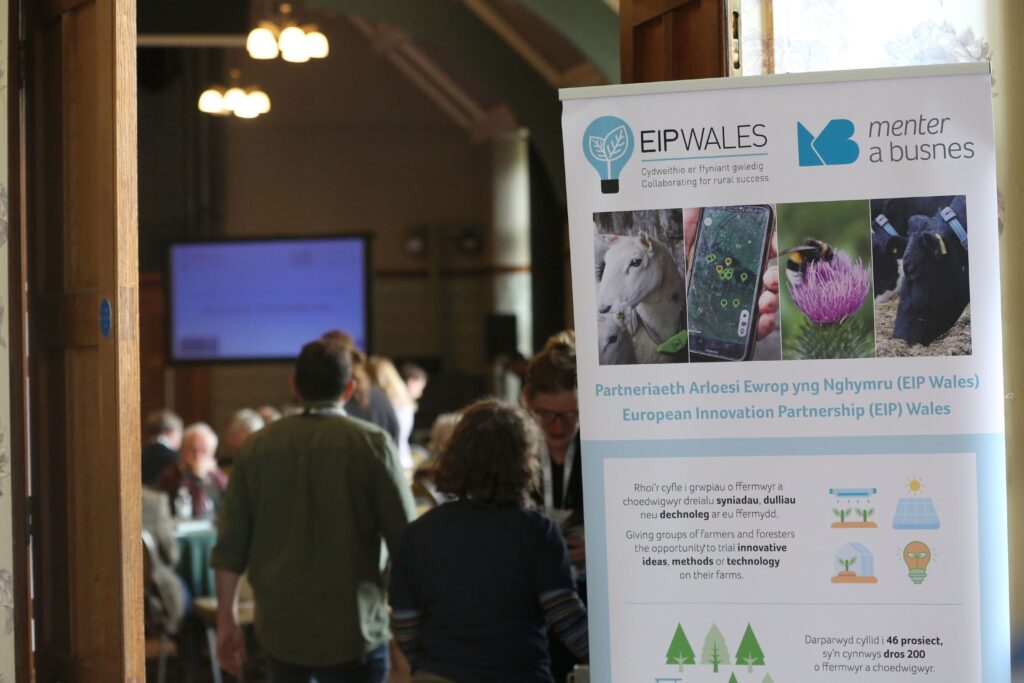
The initiative has been so beneficial that not only do the majority of the farmers who participated plan to continue with some of that work but their businesses have captured either cost savings or more profits averaging £7,500 from putting the research into practice.
EIP Wales programme manager Owain Rowlands said the initiative had encouraged collaboration between farmers, researchers, advisers, and others.
“Bringing farmers and others who work within the agricultural sector together has provided an excellent opportunity to draw from different experiences and to introduce new methods whilst tackling problems,” he said.
EIP Wales reduced the gap that can exist between the results from research and putting them into practice at a farm level, Mr Rowlands added. “Innovation is only successful if it is widely taken up and EIP Wales has highlighted the importance of farmers being directly involved in putting research into practice.”
Collaboration with the Knowledge Exchange Hub at Institute of Biological, Environmental and Rural Sciences (IBERS), Aberystwyth University, had assisted farmers in ensuring their projects were armed with the latest knowledge.
But Mr Rowlands said it would not have been a success without the farmers who had been key participants, and the innovation brokers and facilitators who had helped bring those projects to life. “It has been a great experience seeing such a range of innovative and ambitious ideas coming from farmers. Welsh agriculture has a great deal to be proud of,'” he said.
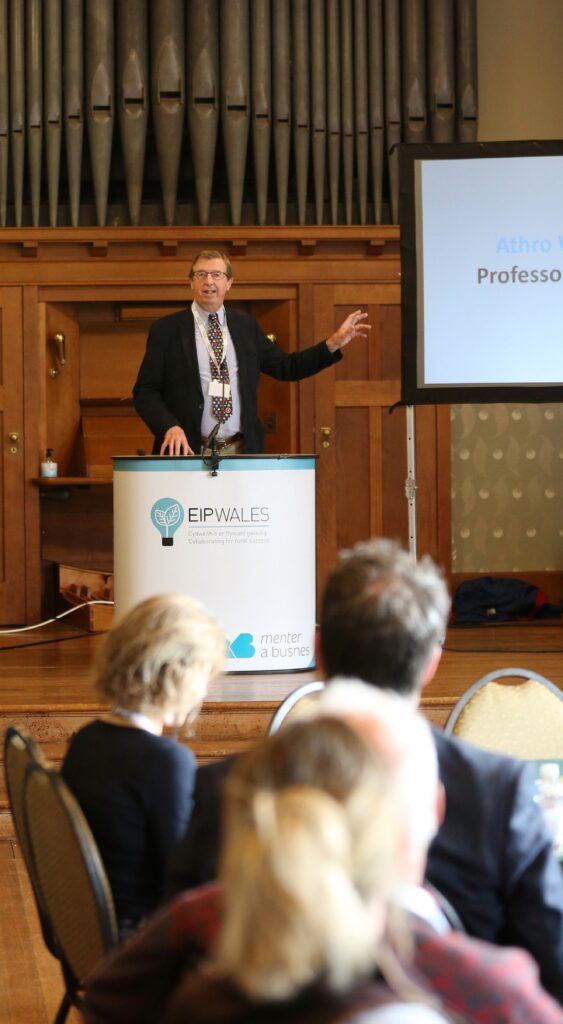
“Despite the present challenges and changes facing agriculture, I think it’s important to remember that this also presents an opportunity to develop new ways of thinking and working, as EIP Wales has proven.”
Some of the areas examined by those studies, including the use of technology in farming, farm diversification and practices that enhance livestock health, were considered in a series of panel discussions at the conference.
The role of regenerative agriculture was also examined, including how it could be integrated into Welsh agriculture whilst maintaining food production.
One of the speakers, livestock farmer, Geraint Powell, has achieved that through building organic matter and soil health with a system of grazing dictated by the pasture recovery period.
Mr Powell manages Cabalva Farm, near Hay-on-Wye, applying regenerative agriculture principles to his beef and sheep system.
“If Welsh farmers aim for healthy soil, healthy animals, healthy people, I think we will be in a much better place,” he said.
Mr Powell and his fellow panelists, farmer and agricultural consultant Hugh Martineau, and film maker-turned-permaculture farmer Matt Swarbrick, all agreed that the one regenerative principle they would like to see all farmers adopt is to restore health to farm soils where it is needed.
“We have to move away from the mindset of forcing the land to do things it doesn’t want to do,” Mr Powell insisted.
“There are big opportunities to get more biomass into soils in Wales.”
Keynote speakers at the conference were Tim Bennett, chairman of the Centre for Innovation and Excellence in Livestock (CIEL), and Powys farmer Keri Davies, who is piloting changes in agricultural practices aimed at improving farm efficiency and resilience.
Help keep news FREE for our readers
Supporting your local community newspaper/online news outlet is crucial now more than ever. If you believe in independent journalism, then consider making a valuable contribution by making a one-time or monthly donation. We operate in rural areas where providing unbiased news can be challenging. Read More About Supporting The West Wales Chronicle





















